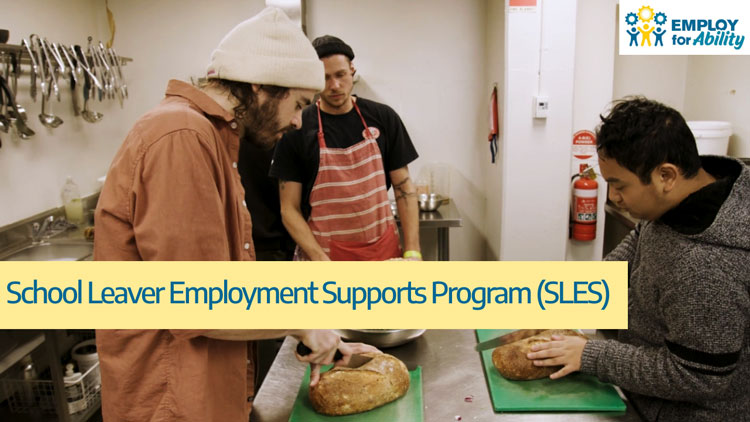
School Leaver Employment Supports Program (SLES)
Our SLES Program is designed to help young adults with an autism diagnosis (or other neurodivergent conditions) become job ready.

Our SLES Program is designed to help young adults with an autism diagnosis (or other neurodivergent conditions) become job ready.
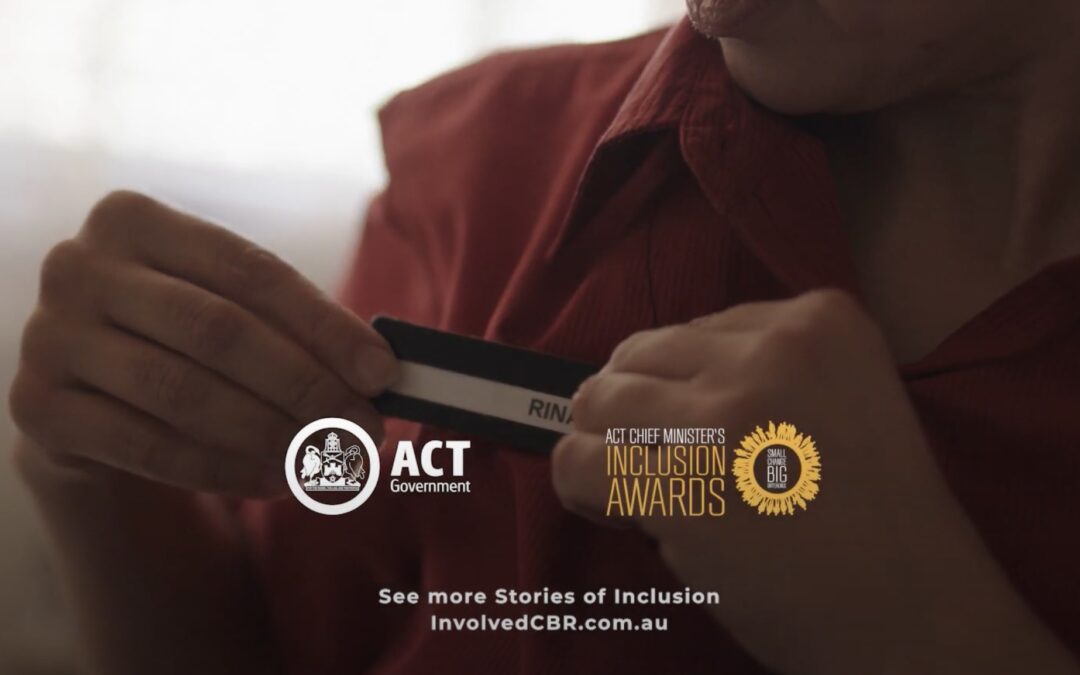
The Chief Minister’s Inclusion Awards acknowledge the outstanding achievements of business, organisations and individuals who have clearly demonstrated their commitment to encourage, welcome and support people with a disability in their workplace, business and community.
They have commenced the release of a series of videos, each with a specific theme which align with Inclusion Awards categories and highlight great examples of progress make toward better inclusion in our community.
The videos focus on celebrating the good and positive stories which have emerged since the beginning of the COVID-19 Health Emergency. Celebrating inclusion in our community rather than awarding individuals and organisations.
This is the first video in a series of stories that highlight inclusion in the Canberra community – Rina’s Story
Following years of volunteer and unpaid work Rina has now secured a permanent part-time position which she describes as her dream job thanks to ‘Employ For Ability’.
David Smith for Employ for Ability – Linkedin + Facebook
An autism and neurodiversity employment specialist and advocate.
Working for the last 20 years in the recruitment sector coaching and mentoring clients, candidates and staff to reach their potential.
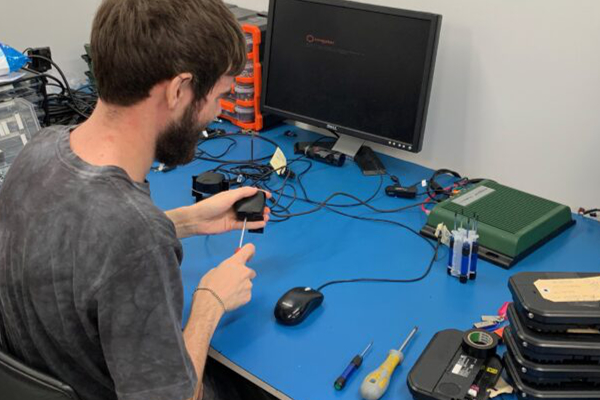
Nick is a client of Employ for Ability who is on the autism spectrum and also experiences severe anxiety. We worked with Nick to examine areas of interest he may want to work in and explored areas of strength.
Over a 4 month period we developed his capacity for work by attending different businesses to gain an understanding of what those businesses did, meet different workers and explore how those experiences intersected with Nicks ASD profile and anxiety levels. Using this approach gave Nick self-confidence and belief that he could meet new people, talk about his areas of strength and gain insight into the world of work.
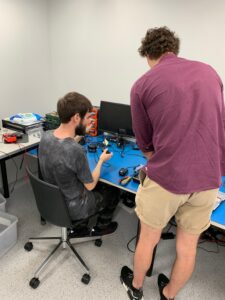
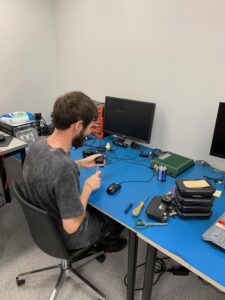
An opportunity presented at Seeing Machines for a role in their technical department testing and repairing returned equipment that can then be redeployed to clients. They needed someone with high attention to detail, ability to learn all the components of the equipment, be able to follow strict quality control processes and be accurate 100% of the time. Nick with his new levels of confidence gave it a go, and excelled.
Seeing Machines understands that people on the autism spectrum can make great employees but the recruitment path needs to be modified to bring out the great qualities in their candidates. They agreed to a 5 day work trial over 2 weeks of approximately 12 hours in total. This allowed Nick the opportunity to overcome his anxiety, try the job in manageable time shifts and demonstrate he had the qualities for the role. He explored longer versus shorter shifts to see how his body and profile reacted to longer shifts Nick determined that a 4 hour shift was optimal at this stage of his work experience.
Nick still experiences anxiety, but has learnt he can do the job and has high confidence in his ability. Seeing Machines has learnt how to help Nick with his anxiety and ASD profile to also ensure he can deliver the fantastic results he is achieving. With ongoing support for Nick and his boss Petar, Nick will be a high performing member of the Seeing Machines team for the long term.
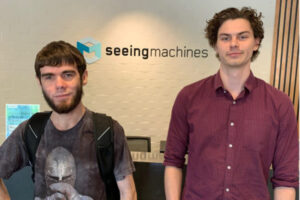
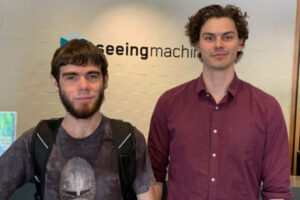

Interviews are one of the most commonly used recruitment techniques by employers to determine the most suitable individual for an advertised role. A successful interview requires appropriate social and communication skills and confidence to progress to the next stage of the hiring process. For many, interviews can be anxiety-provoking to some extent, although still manageable. For individuals with an autism spectrum disorder (ASD) diagnosis, the anxiety that is produced by a generic interview is tenfold. Autistic individuals may experience difficulties with social and communication skills and interpreting nonverbal cues, therefore, approaching an interview is more difficult without alternatives or adequate skills to manage the situation, and thus, creating an initial barrier to finding employment.
“Sometimes (we) miss out on good opportunities because someone less capable presents better in an interview. I have to work harder and achieve more to reach the same level as people with better social skills” Disability Supports Coordinator, Australia (ERE, 2019)
Studies suggest that the transitional period from adolescence to adulthood is a time of increased depression and anxiety contributing to the high rates of unemployment in individuals with ASD (Payne, 2016). Having adequate skills to communication during an interview is likely to increase confidence, but what happens if you have a negative experience in an interview? The effect of a negative experience with an interview is likely to decrease self-confidence and further hinder finding employment opportunities. A large proportion of the ASD population in Australia are unemployed with the most common barriers involving a lack of support and the inability to attend interviews.
Changing the environment of the interview, whether it’s a different recruiting process or accommodating the individual with a familiar, comfortable environment and questions they can answer is crucial. Many studies include work experience and internships as an effective means of determining the right fit for a job and an alternative to the traditional interview model (Wehman et al., 2012). An interesting quote from Bill Wong, an autistic occupational therapist represents this idea well. “For autistic individuals to succeed in this world, they need to find their strengths and the people that will help them get to their hopes and dreams… A supportive environment where they can learn from their mistakes is what we as a society need to create for them.” (The Art of Autism, 2020).
Creating environments where individuals with ASD can thrive in an interview setting and workplaces that fit their areas of interest is necessary. Although these individuals experience difficulties with social and communication skills, they often have high levels of organisational skills, concentration and attention to detail. Stereotypically, individuals with ASD may not seem like an appropriate fit for a job, but the reality is they have many skills to offer in environments that cater to them.
“Our lack of interview skills does not necessarily mean we lack job skills.”
Software Tester, USA (ERE, 2019)
Giving autistic individuals the opportunity to display their skills and abilities in an environment that supports them should be the main focus of the recruiting process. Some ways to accommodate these individuals is swapping an interview for work experience or trials where they can display their skills in a practical way. Allowing the individual to demonstrate their skills while being observed may be a better predictor of their suitability for the job rather than an attempt to articulate their skills in an interview. Series of online psychometric testing may also be a more appropriate way of testing suitability for a job and an alternative to demonstrating their skills.
If an interview has to occur, how can it be made easier for the individual? Allowing the interviewee to bring a support person along may be beneficial to reduce anxiety and assist with better communication. Giving the individual prompts or leading with previous employment experiences may be more beneficial than asking abstract or general interview questions. The interviewer may also want to give the individual clear guidelines of what the interview will consist of, to better prepare them. One of the most important things a manager or recruiter can do is being flexible and understanding that an individual with ASD will likely need accommodations to some degree.
Finding alternatives to the traditional interview model is an essential step for improving the employment rates of individuals with an ASD diagnosis. Studies have shown work experience and internships are more effective ways of displaying skills rather than an interview which relies on verbal communication. As we know, individuals with an ASD diagnosis have increased difficulties with social and communication skills. Observation, work trials and psychometric tests have also been proven to be effective measures of suitable skills. If interviews are the only option in a recruiting process, accommodating for the individual by asking specific rather than abstract questions, allowing them to bring along a support person and accommodating any needs they may have should be the focus.
This article was created by Elise Bulless as part of her Internship at Employ for Ability.
Elise is in her final year of a Bachelor of Science in Psychology at the University of Canberra.
David Smith for Employ for Ability – Linkedin + Facebook
An autism and neurodiversity employment specialist and advocate.
Working for the last 20 years in the recruitment sector coaching and mentoring clients, candidates and staff to reach their potential.
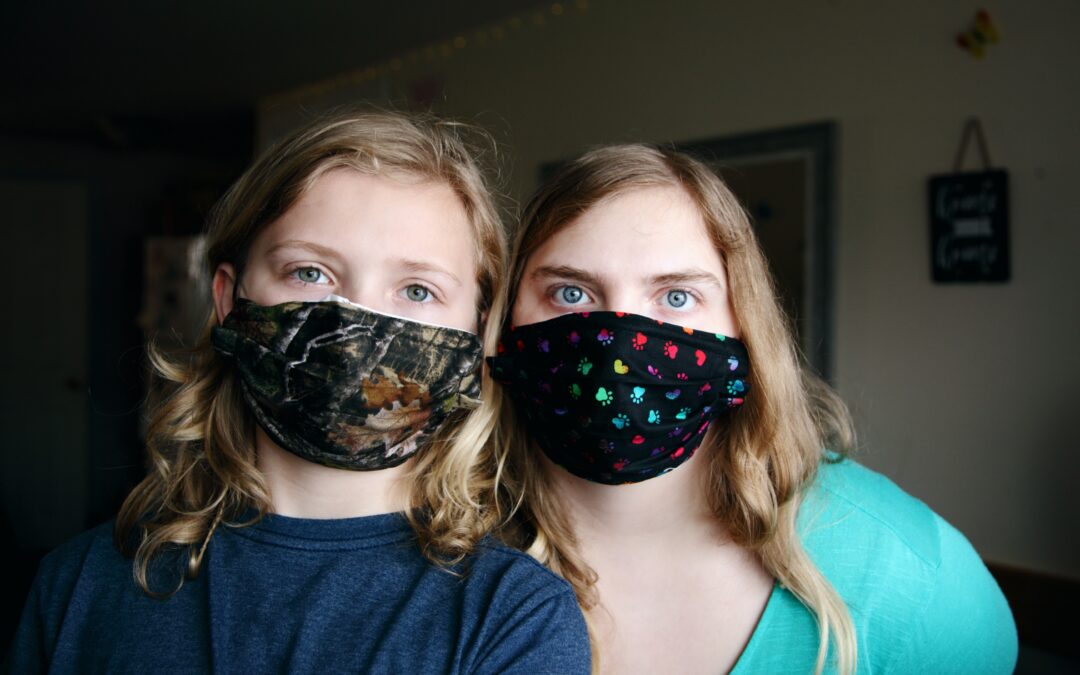
Image: Sharon McCutcheon: UnSplash
During these uncertain times, most of us are feeling very anxious about what is coming next and how the changes will impact our families and ourselves. A lot has changed in the last few days and the world is a very different place compared to just last week.
People with an autism diagnosis may think, feel and respond to these changes differently to their neurotypical peers. The 24-hour news cycle of speculation, sensationalism and presenting the “facts” with their biases and commentary can help to fuel anxiety and drive other psychosocial disabilities. Respect, caution and calmness are required to support our family members on the autism spectrum. These concepts can help our other family members who may not have anxiety by diagnosis but are sure feeling the symptoms right now.
As the number of cases of COVID-19 rises in the coming days and further interventions by our governments and employers increase, it is important we focus on our mental well-being and learn to manage our stress as well as the stress of our family members. Early intervention can help to alleviate severe anxiety and other comorbid conditions such as depression. The Australian Psychological Society has a good information sheet, which I have summarised below with an Autism focus.
Our constant news cycle and media coverage with commentary fuels our anxiety levels and more so for someone with an autism diagnosis. Limit your media exposure and rely on the original sources of information. Look at the government’s websites https://www.health.gov.au/news or another trusted source of factual information for the information on the topic you want. If you are wanting information on schools, read the statements from your state or territories education system.
Many people with an autism diagnosis live with a heightened level of anxiety that when their predicted routine and world function as expected they can cope with. Changes to routine, unexpected events like school changes, parents work being closed and not participate in their hobbies or sports can heighten their levels of stress and anxiety. It is easy to look at the glass is half full and see the worst case scenario when your world is rapidly changing and often impacting you financially. In terms of the COVID-19 pandemic, ask yourself and help your loved one with an autism diagnosis by explaining to them.
Focus your loved ones on the proactive and practical basic hygiene principles can help to keep your anxiety at bay. Medical authorities recommend a range of protective practices:
To foster a positive mindset in you and your loved one with an autism diagnosis it is important to look after yourself. Self-care is unique to each person but things you can focus on are:
Your family members will read your stress and anxiety about the changing world. They pick up more than you imagine. It is really important they can talk to you about their concerns.
Answering their questions is a keyway to help reduce their anxiety levels. Be honest, factual and use non emotional terms to answer their questions or refer them to the fact-based websites mentioned earlier.
Explain it is normal to fee worried about getting sick. Listen to them and reassure them that you there to help them with whatever changes arise in the future. Model calmness and do not pass on your concerns or worries you have about the future. Limit media exposure as the constant negativity as the government makes additional statement and changes can increase their levels of anxiety and fear. Read the governments statements together and discuss them so you can answer your loved one’s concerns.
Seek additional support from a psychologist or counsellor if you feel you or your loved one with an autism diagnosis is feeling overwhelmed due to stress or anxiety. If you are referred to a psychologist from your GP you may be eligible for a Medicare rebate.
Looking out for each other and recognising that all people will react differently to the transitions we are experiencing is a good start.
David Smith is an autism employment specialist and advocate. David is a research student looking at mental wellbeing, autism and employment.
David Smith for Employ for Ability – Linkedin + Facebook
An autism and neurodiversity employment specialist and advocate.
Working for the last 20 years in the recruitment sector coaching and mentoring clients, candidates and staff to reach their potential.